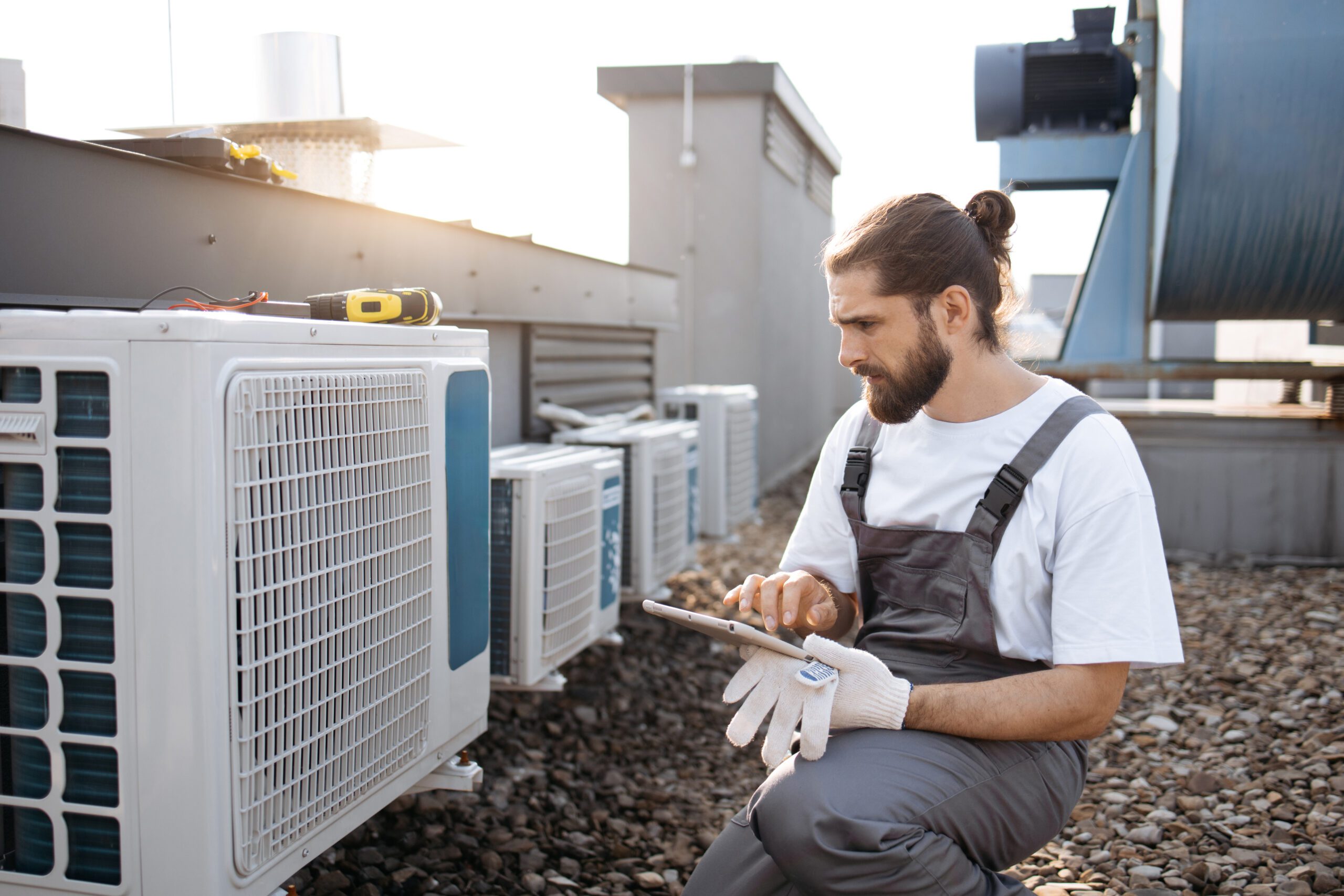The HVAC services sector is experiencing a significant uptick in M&A. According to CapIQ, there were 138 announced or completed deals in 2024, marking an 11.6% increase year-over. This surge is driven by strategic buyers aiming to expand their geographic footprint and service offerings. Moreover, the HVAC services sector is expected to maintain its growth trajectory in the near term as regulatory changes push for more energy-efficient solutions. However, the growing impact of tariffs is introducing significant uncertainty, affecting material costs, and profit margins.
Key Trends Impacting HVAC Service Business Sales
- Strategic Buyers Leading the Charge: Strategic buyers, including both public and private entities, have taken the lead in HVAC service acquisitions, accounting for 62.9% of deals in 2024—a trend not seen since 2020. According to Inc.com, the rise of strategic acquisitions is further fueled by a desire to control supply chains and reduce operational costs, a strategy increasingly critical in the face of tariff uncertainties.
- Emphasis on Talent Acquisition: With a growing demand for skilled HVAC technicians, acquiring companies are placing a premium on businesses with strong teams. This focus on talent acquisition is a key driver in the current M&A landscape. Furthermore, Benchmark International indicates that companies with well-established training programs and employee retention strategies are attracting higher valuations.
- Regulatory Changes Driving Demand and Uncertainty: New regulations, such as the EPA’s mandate to transition from R-410A refrigerant to alternatives like R-32 or R-454B, are prompting a wave of equipment upgrades. This regulatory shift is increasing demand for HVAC services, making companies in this sector more attractive to buyers.
- Private Equity’s Continued Interest: Private equity firms remain active in the HVAC services space, often seeking platform companies for add-on acquisitions. For example, Sila Heating & Air Conditioning has made 28 acquisitions since receiving investment from Morgan Stanley Capital Partners in 2021. Meanwhile, PE Hub reports that private equity firms are increasingly targeting HVAC service companies with proprietary software solutions or strong recurring revenue models. Note that, in many cases, the most active private equity firms already have a platform in the industry and approach a potential acquisition as a strategic buyer.
Impact of Tariffs on HVAC Service Companies
- Rising Equipment and Material Costs: The imposition of tariffs on imported steel, aluminum, and HVAC components has led to increased production costs for manufacturers. These costs are often passed down the supply chain, resulting in higher costs for service companies selling these products and, consequently, end consumers.
- Supply Chain Disruptions: Tariffs have disrupted established supply chains, causing delays and shortages of essential HVAC components. Many service companies report longer lead times for parts, affecting their ability to complete projects on schedule. The uncertainty surrounding trade policies has also made it challenging for businesses to plan inventory and pricing strategies effectively.
- Strategic Shifts in Sourcing and Manufacturing: In response to tariffs, some HVAC manufacturers and service providers are exploring alternative sourcing options, including domestic suppliers or countries not affected by the tariffs. While this strategy aims to mitigate cost increases, it often involves significant adjustments in logistics and supplier relationships.
- Impact on Service Pricing and Profit Margins: The increased costs due to tariffs have compelled HVAC service companies to reevaluate their pricing models. While some businesses have passed the additional costs to customers, others have absorbed them, leading to compressed profit margins. This financial pressure is particularly challenging for small to mid-sized service providers.
Considerations for HVAC Business Owners Contemplating a Sale
- Evaluate Your Workforce: Given the industry’s emphasis on talent, ensure your business has a strong, skilled team in place. This can significantly enhance your company’s attractiveness to potential buyers, particularly those seeking to scale.
- Stay Ahead of Regulatory Changes: Proactively adapting to new regulations can position your company as a leader in compliance and innovation, making it more appealing to acquirers.
- Manage Tariff-Related Uncertainty: For business owners considering a sale, the current tariff environment presents both risks and opportunities. Companies that have developed strong domestic supplier networks or hedged against tariff increases may find themselves in a stronger negotiating position. Conversely, those reliant on imported materials should be prepared to discuss how they plan to manage potential cost increases. Specifically, owners should consider these strategies:
- Cost Management: Implement strategies to manage rising costs, such as bulk purchasing before tariff hikes or negotiating better terms with suppliers.
- Diversify Supply Chains: Explore alternative suppliers in countries not affected by tariffs or consider local sourcing to reduce dependency on imports.
- Customer Communication: Be transparent with clients about potential price increases due to tariffs to maintain trust and manage expectations.
- Financial Planning: Review financial models to account for increased costs and assess the impact on profitability and cash flow.
- Understand Your Market Position: Assess your company’s market share, customer base, and service offerings. A clear understanding of your strengths can help in negotiations and valuation discussions.-Seek Professional Advice: Engaging with experienced advisors can provide valuable insights into the M&A process, helping you navigate complexities and maximize value.
In conclusion, The HVAC services sector’s M&A activity continues to be robust, driven by strategic acquisitions, regulatory changes, and a focus on talent. However, ongoing tariff uncertainties are forcing business owners to carefully consider timing, strategy, and supply chain dynamics as they explore exit options. For business owners considering a sale, understanding these trends and preparing accordingly can lead to successful outcomes.
For more information on navigating the sale of your HVAC business, contact Brooks Crankshaw at Brooks.Crankshaw@Forbes-Partners.com.
Brooks Crankshaw is Managing Director, Investment Banking at Forbes Partners. He specializes in advising owners of Business Services companies on the sale of their business, growth through acquisition and raising capital.

